Hell. Possibly one of the most influential ideas in history, holding the power of eternal punishment for believing the wrong things. As an evangelical teenager I found myself sobbing on the floor as I realized how many people were going to hell every moment, and how little there was I could do about it. My tears dried and I got up off the floor, but I couldn’t escape the “reality” of hell and still maintain my loyalty to the Bible. Could I?
In my Christian university, a professor leading a group discussion slowly raised the idea of universalism. The class jumped on him like Christians have always jumped on heretics. Everyone in the room was trying to prove why he was wrong, and I led the charge. I had all the biblical tools in my tool belt. I fired passage after passage at him, asking how he could possibly deny eternal punishment in hell. What about Matthew 16? Matthew 25? Revelation 20? He didn’t give me direct answers, but also didn’t seem fazed. I threw out the implications too — without a hell, what is salvation? What is the point of a Christian’s life if not to make converts? Why did Jesus have to die? He kept giving responses that didn’t make sense to any of us, and the room grew more and more heated.
But in a sudden out-of-body moment, I stopped and watched. I saw a group of angry young Christians furiously trying to prove that people go to hell. And the hypocrisy of it hit me — even if we’re right, even if hell is all true, shouldn’t we want to be wrong? Shouldn’t we want God’s love to be big enough to save everyone and everything? Something clicked in me that on the outside mainly looked like less talking and more listening. On the inside I began to consider that my vision may have been blurred by my own culture, interpretations, and agenda.

I finally let myself acknowledge that I didn’t want hell to exist. But I thought I was going against everything the Bible taught. Over time, I began to hear about other well-known Christians who didn’t seem to believe in a strict hell of eternal, conscious, fiery torment for all non-Christians, names like Origen, Gregory of Nyssa, Julian of Norwich, George Whitfield, Karl Barth, and C.S. Lewis to name a few. My courage grew with my curiosity.
I’ve done a fair amount of study in Hebrew and Greek, so I decided to check out the actual word for “hell” in the Bible. I was surprised to find… there isn’t one: there are four.
In the Old Testament, the Hebrew word sheol is used frequently and was often translated “hell” in the King James Version of the Bible — arguably the most influential English translation of all time. But sheol doesn’t have a very specific connotation in its Hebrew context. The first use is in Genesis 37:35, as the Israelite patriarch Jacob grieves the loss of his son Joseph and says, “I will continue to mourn until I join my son in the grave” (NIV). The word “grave” is the Hebrew sheol, which probably here doesn’t mean fiery pit of torture considering that Jacob sees himself as destined for it. Or the comforting verse from Psalm 139: “If I go up to the heavens, you are there; if I make my bed in the depths, you are there” — “depths” here is sheol. I don’t know about you but “hell” is not exactly the place I imagined making my bed or finding God with me.
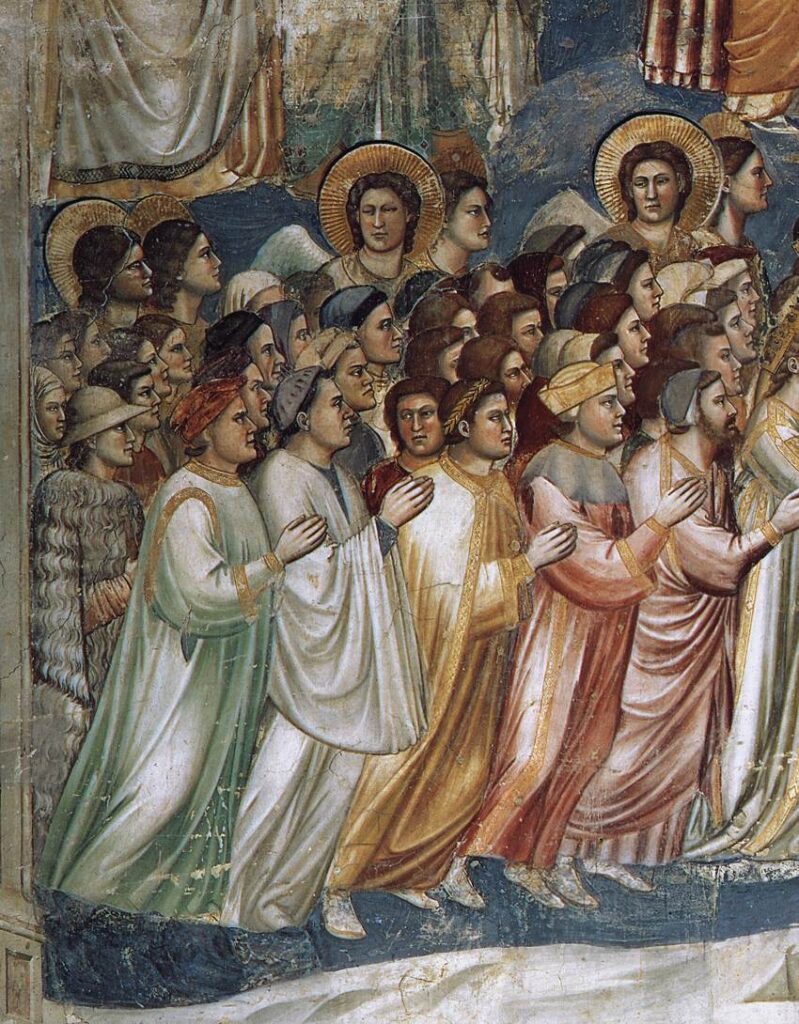
But the afterlife in general is a hazy concept in the Old Testament. What we really want to know is in the New Testament: What about Jesus? Salvation? The end of the world?
In the Greek of the New Testament, there are three different words to consider: gehenna, tartaurus, and hades.
Gehenna shows up twelve times: all of these are in the Gospels (but not John) except one in the letter of James. Never in the letters of Paul. Not in Revelation. We know it from verses like: “If your hand causes you to stumble, cut it off. It is better for you to enter life maimed than with two hands to go into hell, where the fire never goes out” (Mark 9:43), or “Anyone who says, ‘You fool!’ will be in danger of the fire of hell” (Matt 5:22). The fire imagery accompanying gehenna is new; it wasn’t part of sheol in the Old Testament. Where did the fire idea come from? While there are many factors, most significant is the fact that gehenna was based on an actual place. The “Valley of Hinnom” (in Aramaic, gehenna) was remembered as a place of child sacrifice to foreign gods in Israel’s history, and other traditions remembered it as a massive crematory/garbage heap where the fire, in essence, “never goes out.” The imagery of gehenna was used as a metaphor that came to be understood in later rabbinic circles as a spiritual place of purifying like purgatory. The standard Rabbinic view around the time of Jesus was that no one was tormented in gehenna more than twelve months. Wow, that’s nice. So, there’s always the possibility that Jesus meant eternal torturous hell, but it seems unlikely at best.
The other two terms are tartaurus and hades. Anyone familiar with Greek mythology has heard of these, and the Greek-influenced Jewish culture of the first century would have been familiar with them as well. Tartaurus — a place where Greek gods sent other gods for punishment — occurs only once in 2 Peter 2:4 when the author states God sent sinful angels to Tartaurus. Hades is the Greek realm of the underworld where, in Greek mythology, all people go when they die. This word occurs ten times in various genres of the New Testament, most of which are in metaphors and parables, and only one of which indicates it as a place of torment (Luke 16).
Sheol. Gehenna. Tartaurus. Hades. Similar but different; overlapping, but not identical.
But in 1611, the King James Version of the Bible translated them all the same: hell.
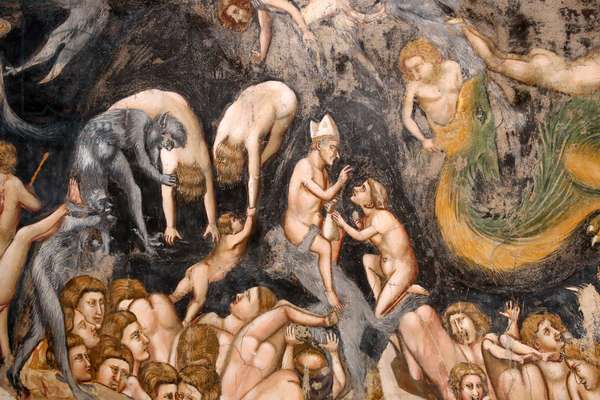
In the English speaking world, then, “hell” permeated everything: Old and New Testaments, every book, every genre. Theologies harmonized all the references, taking every quality of each term and piling them on top of each other. It became what it was to me as a teenager: an unquestionable biblical principle.
How would Christianity look different if we had simply used different words for different concepts, like the original languages did?
Maybe that’s why the early Christian creeds don’t include a theology of hell. The Nicene Creed, which goes all the way back to AD 325 and is still repeated by many Christian denominations weekly, doesn’t mention hell once.
When I first put these pieces together, I found myself on the floor in tears again. Not out of anguish and fear, but out of radical relief. Out of gratitude that even within the orthodox Christian tradition, I did not have to believe in hell.
That is good news.
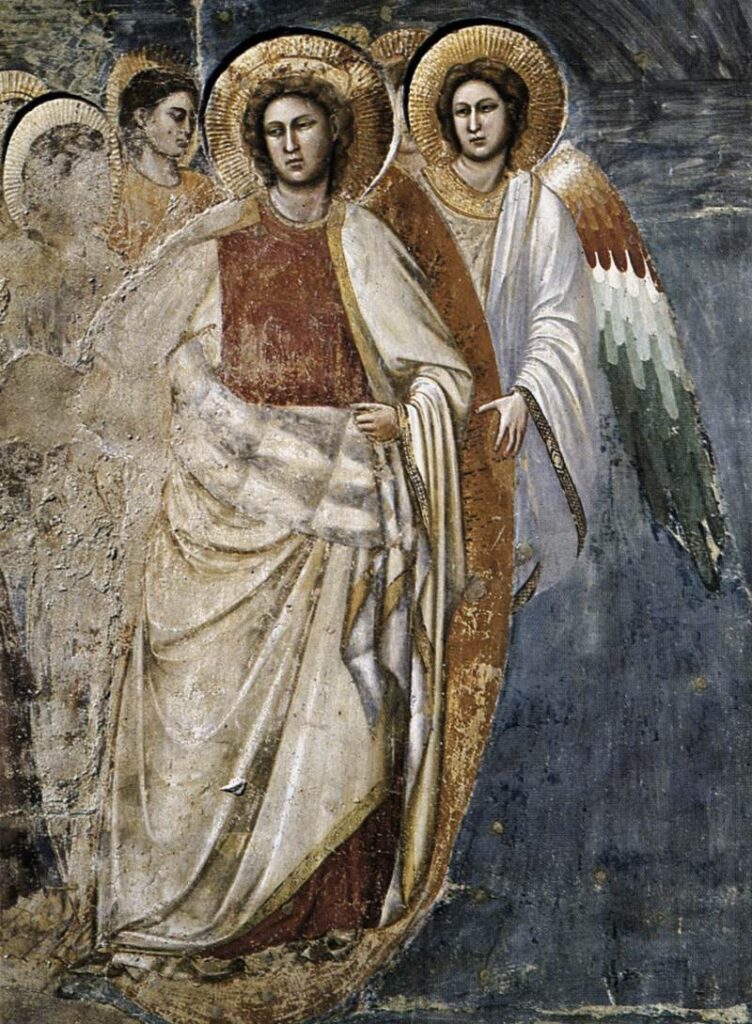
I haven’t been able to stop sharing about these discoveries since finding them. Interestingly, the most common scriptural response I get is to quote Matthew 25, the parable of the sheep and the goats. I get it, the “goats” are sent to “eternal punishment;” sounds pretty straight-forward, right? Maybe until you really read the whole parable: the sheep are separated from the goats based not on belief in Jesus or faith in him, but purely on their actions of compassion toward their fellow human beings. If that’s what decides who goes to “heaven” or “hell,” it sure isn’t what Christianity is teaching today. Similarly, the most striking “hell” imagery may occur in Luke 16: a rich man burns in torment while the poor man Lazarus is welcomed into comfort. While many use this passage as an argument for hell, the economic implications for who would hypothetically end up there are often ignored.
The other most common response is regarding the implications that stopped me in my tracks early on: What is salvation? What is the Gospel? Beautiful questions that I’m eagerly diving into. I don’t know exactly, but it’s a journey that I’m no longer afraid to take because my eternal destiny is no longer at stake.
Don’t get me wrong: there is hell-like imagery throughout the Bible, and the various authors did appear to have an array of concepts around post-mortem judgment. But my foray into studying the topic has led me to conclude that opinions were wide-ranging and inconclusive, a far reach from most evangelical doctrines of hell today.
So when people ask me if I believe in hell, I usually answer them, “I don’t have to.” The Bible isn’t clear on it, the early Church didn’t see it as essential, and I’m in the company of a history full of Christians who didn’t believe in hell. And I’m pretty happy about that because, of course, I don’t want to.
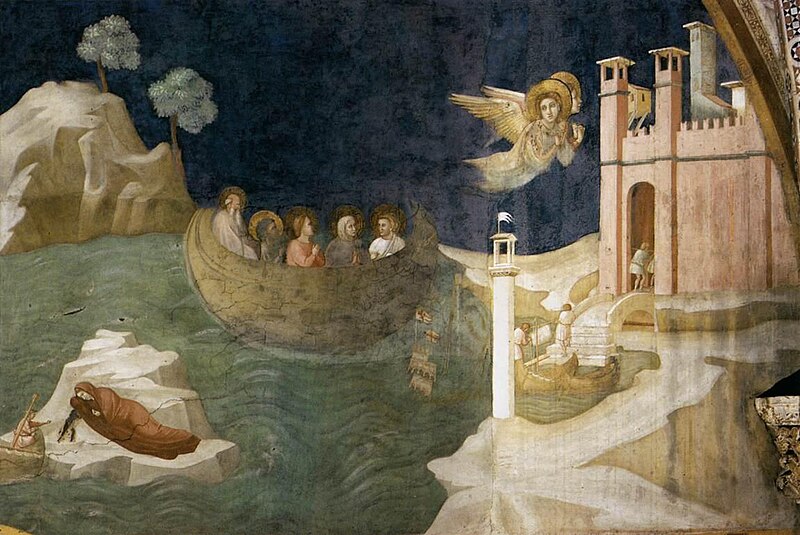
All images from paintings by Giotto di Bondone

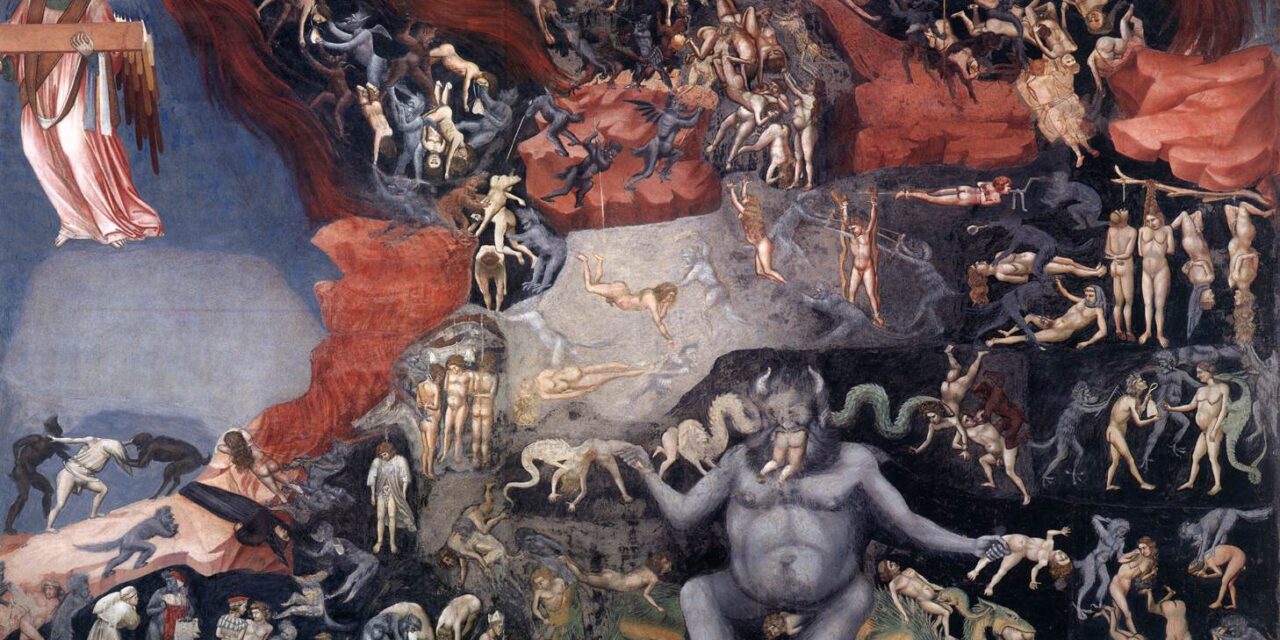
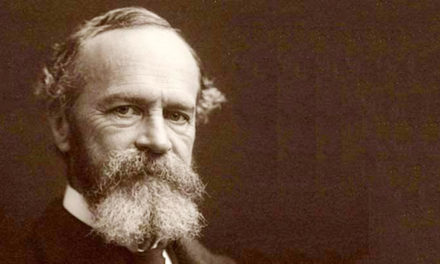




Dear Ms. Hanson, Your article on “Finding our ‘Hell’ isn’t in the Bible’ was like a lightening bolt to me. I am not as learned as you but have questioned this & other “Biblical Truths’ for a long time. Thank you for all you studying & researching & sharing that with us. Bless you.
I love this! Where can I sign up for your courses?
Go Girl! I like to think that we are all responsible for helping everyone of us reach paradise
on this earth and in the next life. God for me is now the Sacred Cosmic Being who loved all
Life into being. It has made such a difference to move from fear and shame-based thinking
to forgiveness of self as well as others.
Enjoyed your persuasive article on not believing in hell. We both had similar experiences questioning as teenagers the existence of this place of eternal torment, you as an evangelical and I as a Catholic. Like you, this teaching did not sit well with me. I dared question how this all-loving, all-knowing, and all-powerful God, that my church taught, created a hell, a place of eternal punishment for its created children. This is inconceivable. It’s been said that hell has been the best friend that the church ever has had filling its pews. Nothing motivates like fear and guilt. Again, like you, I don’t have to believe in a hell, or for that matter, a devil.
Than you Shelby! It can be a lonely path for the one who turns away from Hell. May your heart be held near to Jesus. Den
Oh, how I love this. Being a fairly faithful reader of The Braided Way, I’m not sure how I missed it, but it is dandy. The Netflix movie “Come Sunday” tells the dramatic story of Bishop Carlton Pearson who claimed to hear directly from the Holy Spirit that there is no hell. It cost him 90 percent of his huge megachurch in Tulsa, but he took his remaining flock to the local Unitarian Universalist congregation. He passed far too soon last year, but his story is well told in the movie. Also Rob Bell and David Lowes Watson have written wonderful books of he “no hell” tradition. Thank you most kindly for this.
And thank you most kindly, Pat Jobe, my first “no heller” pastor and dear friend. This is a great and tender piece.
Thank you Shelby
Had a very similar experience. So glad you shared what I see to be the good news for all mankind!
Paul’s writings also played a giant role in my Christian universalist understanding.
I like you and many others were not expecting to get such wonderful good news!
Now we can actually call The Gospel good news without blinking an eye.
Buddy. 318 608 7227
If it doesn’t exist, then why does Jesus talk more about hell than He does about heaven?